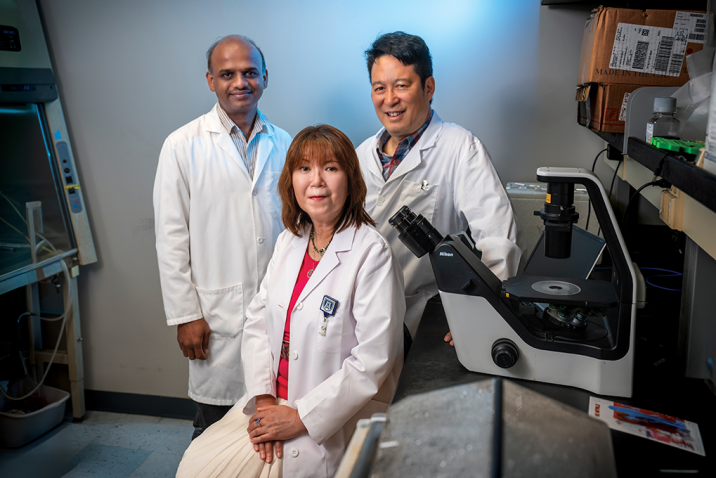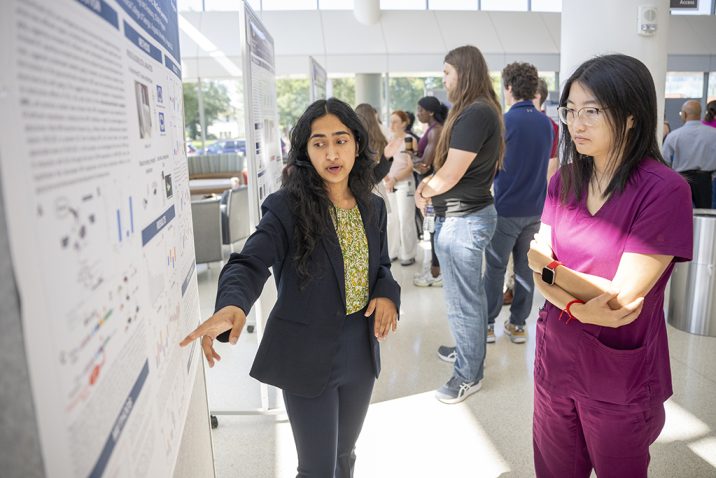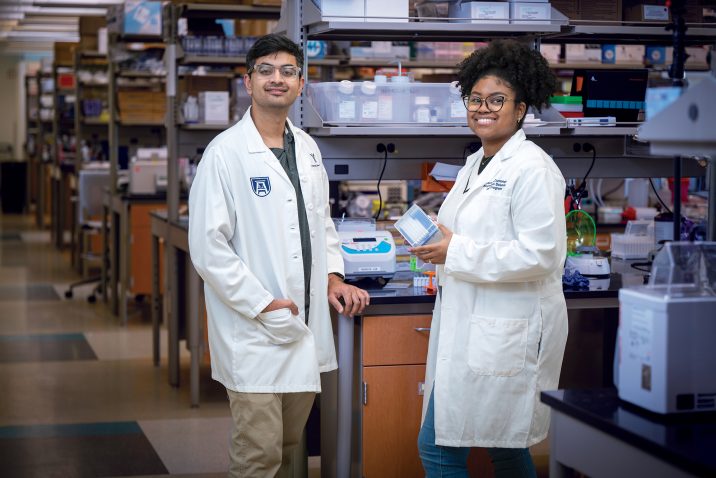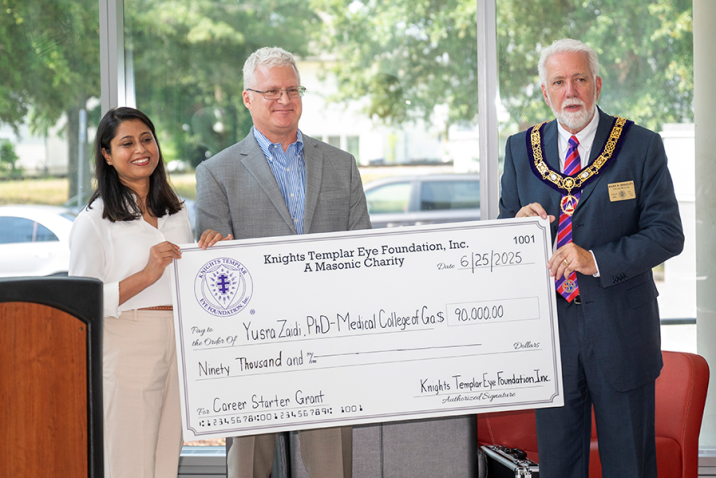MCG researchers uncover how exercise reboots vascular health in diabetes
“The superoxide dismutase is one of the keys to understanding the mechanism of how exercise improves our vascular health,” says Tohru Fukai, MD, PhD.
With a Master of Science in Medical Physiology, you’ll be preparing yourself for admission into professional school programs like medical school, dental school or other biomedical programs by improving your academic credentials and competitiveness. The core physiology curriculum is a rigorous, detailed examination of the physiological systems at a level equal to that seen in first-year medical school.
Physiology explores the fundamental mechanisms of life by examining healthy body function, the mechanisms of disease, and the structure of cells, tissues and organ systems.
If you choose to earn your MS in Medical Physiology from the Medical College of Georgia at Augusta University, you’ll be studying in the only program of its kind in Georgia.
Medical Physiology is for you if you consider yourself
Healing
like no
other.
Want to learn more about the Medical Physiology program at Augusta University?
Request InfoWhat You'll Study
Students in Augusta University’s Master of Science with a major in Medical Physiology program will complete a total of 30 credit hours designed to be completed in two semesters. Core classes in physiology, pathophysiology, anatomy, and histology are complemented by six credit hours of advanced physiology coursework or laboratory research. Lectures in the MS in Medical Physiology program are taught by a collaborative team of MCG faculty, many of whom have extensive experience teaching in the first year medical school curriculum.
Curriculum | Admissions Criteria | Tuition and Fees | Application Deadlines



EXPLORE. EXCEL. EXPAND.
Augusta University's graduate programs are among the best in the nation – and the world – and our graduate students are our most valuable assets. To ensure that our students earn more than a degree, the Graduate School offers a range of opportunities so they can develop the leadership, communication and personal skills needed for a rewarding life and academic, research or professional career.
See what the Graduate School has to offer »
About the Graduate SchoolExperience-based Education
Physiology faculty currently hold approximately $7 million in extramural funding, providing numerous opportunities for students to participate in cutting-edge biomedical research in modern, well-equipped laboratories.
A weekly seminar series allows students to join faculty and researchers in important learning opportunities. Several established lectureships bring in distinguished lecturers from across the world. MS and PhD graduate students meet weekly to critique published research articles in collaborative small-group discussions.
The MS in Medical Physiology program utilizes cutting edge medical education technology such as the MCG interdisciplinary simulation center and ultrasound laboratory as well as engaging activities to measure physiological parameters, all designed to help students learn through hands-on experiences.
A Master’s in Physiology prepares students for professional school by mirroring the physiology curriculum of first year medical school.
The Medical College of Georgia boast state-of-the-art medical training facilities and labs.
Individualized academic support provides students with academic assistance, professional school application assistance, and tailored career development advice.
As the state’s only public medical school, MCG is recognized as Georgia’s leading provider of physicians and receives nearly $64 million in funding from the National Institutes of Health.
Your Future
A Master of Science in Medical Physiology prepares students to move on to medical school, dental school, PhD, or other professional programs, paving the way for careers in healthcare practice or research.
GPA: Overall GPA of 3.0 on a 4.0 scale at the Baccalaureate level calculated on all undergraduate work.
Degree Requirement: Minimum of a Bachelor’s degree or equivalent from an accredited college or university.
Transcripts: Official transcripts are required from all universities and colleges ever attended. Unofficial transcripts from US colleges and universities can be used in the admissions review process in lieu of official transcripts for this program.
Standardized Test Requirements: Standardized test scores are not required for admission, however, an official MCAT, DAT or GRE score can be submitted as supplemental material.
Letters of Recommendation: Recommendations from three individuals must be submitted through the application portal.
Prerequisite Coursework: It is required that all applicants have completed or can show proficiency in the following undergraduate subjects:
International Students: Please review the verification process for international transcripts and the english proficiency requirement.
$4,801*
Estimated total
Full-time / In-State / Per Semester
$401
Tuition Per Hour
$675
Mandatory Fees
View Detailed Program Tuition
*Tuition & Fees listed here are for in-state students enrolling in the university for Fall 2024 semester.
Detailed Program Tuition InformationEarly submission of all application materials is strongly advised.
All required application materials and documents must be received in order for an application to be considered complete and before an admission decision can be made. The program does not accept applications after the published application deadline, however the program will continue to accept application materials up to 2 weeks after the application deadline.

As the only program of its kind in Georgia, earning a Master of Science in Medical Physiology makes you distinctive among applicants moving on to medical school, dental school or other biomedical programs.
Faculty-facilitated seminars, workshops and lectureships promote professional growth and provide opportunities to interact with a wide range of faculty members and researchers.
As one of Georgia’s four research universities, Augusta University provides unparalleled access to groundbreaking researchers and the projects they’re involved with.

“The superoxide dismutase is one of the keys to understanding the mechanism of how exercise improves our vascular health,” says Tohru Fukai, MD, PhD.

"Our goal is to attract students who are passionate about advancing health care through discovery and innovation," says Elena Dent, PhD.

Two graduate students from the Immunology Center of Georgia will use NIH awards to explore the immunological drivers behind cardiometabolic disease.

“If retinopathy of prematurity is treated early, vision can be improved or saved, and we can protect the future of these infants,” says Yusra Zaidi, PhD.